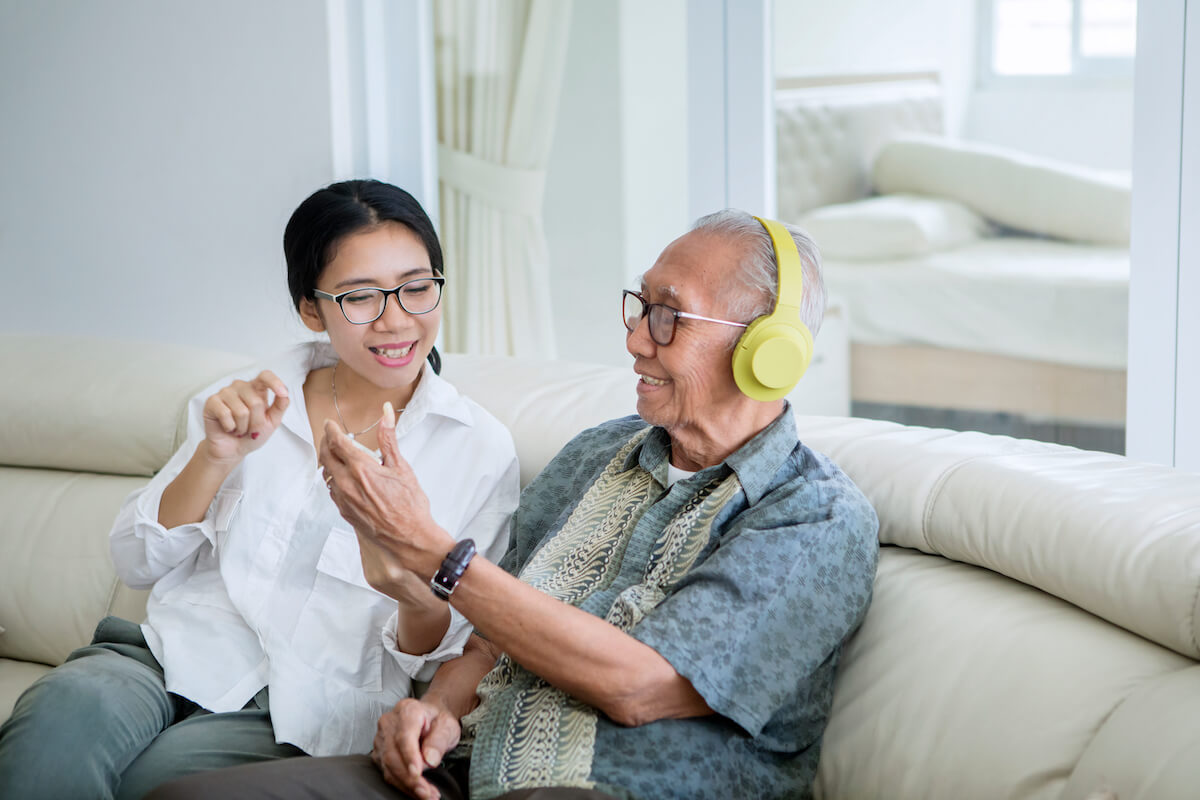Caring for someone with dementia is a profound and emotional experience. Dementia impacts how individuals process and express thoughts, making communication challenging. Yet, as words become elusive, connections can still flourish through compassionate and effective dementia communication techniques.
At Community Senior Life, we provide memory care services throughout Alabama and are committed to providing family members and caregivers with practical and effective strategies to communicate beyond words alone. Our team is sharing some of these dementia communication techniques to enhance your and your family member’s connection.
The Importance of Non-Verbal Communication
When verbal communication falters, nonverbal techniques offer a lifeline. Learning and incorporating nonverbal communication becomes essential. Simple gestures, expressions like a warm smile, familiar surroundings, music, and other nonverbal cues bridge gaps in understanding, providing comfort and connection. Leveraging these cues can create a more nurturing and supportive setting to help individuals feel seen and valued.
6 Effective and Compassionate Techniques
Use Body Language
Body language is one of the most powerful dementia communication techniques. Maintain an open posture, face the person directly, and use calm, slow movements. Avoid crossing your arms or displaying impatience, as these can create barriers and increase feelings of frustration or isolation. Instead, extend a hand or offer a gentle touch to show support and encouragement. Smiling and nodding can also help convey warmth and understanding, making the person feel more comfortable and valued.
Create a Familiar Setting
Maintaining a space that feels familiar can help your family member feel safe and ease anxiety. Surround your loved one with cherished items, photographs, and comforting scents that evoke positive memories and a sense of home.
Consistent routines provide a sense of stability, reducing confusion and creating a predictable setting. Incorporating daily rituals, like having a cup of tea at the same time each day, can further enhance their sense of security and familiarity.
Music for Mood and Memory
Music is another one of the profoundly effective dementia communication techniques. Music can evoke emotions, trigger memories, and create connections that transcend verbal communication. Play familiar tunes or songs from their youth to stimulate joy and engagement. Encourage gentle humming or tapping along, fostering a shared moment of happiness and connection. Simple instrument playing or sing-alongs can further engage a family member with dementia in a therapeutic and enjoyable manner.
Eye Contact and Facial Expressions
Eye contact can convey presence and attentiveness, making a family member with dementia feel valued and recognized. Combine this with warm, expressive facial expressions to show empathy and understanding. Smiles, nods, and soft gazes can transcend verbal limitations, bridging emotional gaps and fostering a deeper connection. Additionally, mirroring their expressions and emotions can help them feel understood and connected, reinforcing their sense of self-worth and significance.
Voice Tone and Personal Appearance
A gentle, soothing tone of voice can reassure and calm individuals with dementia. Speak slowly and clearly, using simple phrases and pausing to allow them time to process information. Your personal appearance also matters; dressing neatly and maintaining a clean, welcoming demeanor can make interactions more pleasant and respectful. These elements combine to create a comforting presence, helping to set a positive tone for communication and interaction.
Giving Personal Space
While engagement is vital, an often overlooked dementia communication technique is simply providing space and respecting privacy. Allow your relative moments of solitude, ensuring they feel autonomous and dignified. Providing opportunities for independent tasks, such as simple occupations or hobbies, can enhance their sense of self and purpose. Balancing interaction with independence fosters a respectful and empathetic relationship, ensuring that their needs for both connection and privacy are adequately met.
—
Enhancing communication with people we love and who have been diagnosed with Alzheimer’s disease or any other form of dementia requires patience, empathy, and creativity. Compassionate care is the foundation of our memory care communities in Alabama, enriching lives and nurturing bonds.
Are you ready to enhance your communication with those close to your heart? Contact a member of the Community Senior Life team to learn more about our programs, amenities, and services. Better yet, schedule a tour at any of our memory care communities in Alabama to discover how our compassionate caregivers can support your family member and provide them with a dignified lifestyle.
